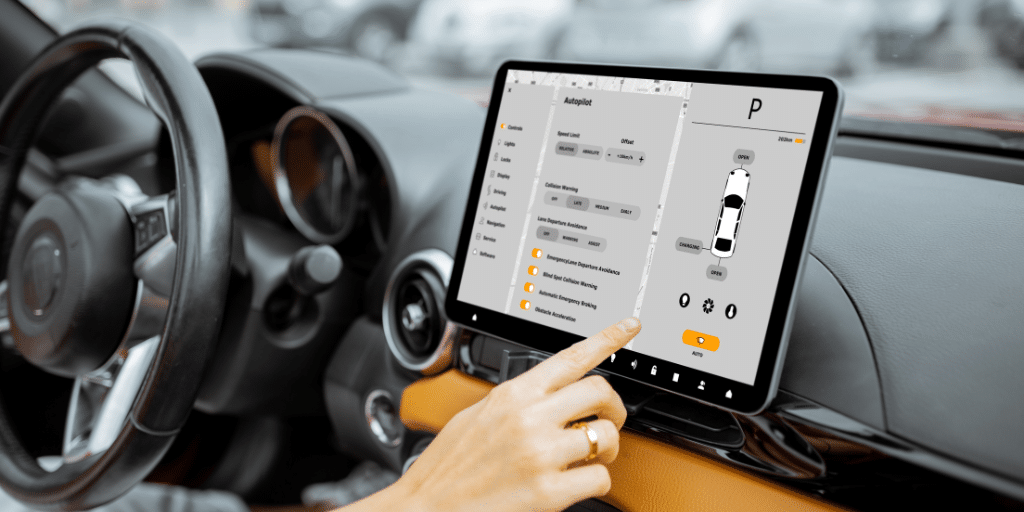As technology continues to redefine the driving experience, automakers are beginning to recognize the immense value in fostering strong collaborations with their chip suppliers.
Partnerships between car manufacturers and suppliers are transforming the way the industry operates and paving the way for a more tech-savvy and resilient automotive sector.
Recognizing the Power of Information Sharing
One of the fundamental shifts in the automotive industry is the growing recognition of the value of sharing information between automakers and chip suppliers. This transparency allows both parties to exchange crucial market data, creating a symbiotic relationship that benefits both parties.
Consider, for example, Toyota and Denso’s partnership in establishing Mirise to make and buy semiconductors. Through its equity participation in the company, Toyota can drive innovation in auto chip manufacturing beginning at the planning phase. By sharing insights into market trends, demand forecasts, and supply chain dynamics, both partners gain the ability to identify potential supply chain disruptions early on. This proactive approach stands in stark contrast to the reactive measures that were often the norm in the past. By recognizing issues before they escalate, swift action can be taken to mitigate disruptions, ensuring a smoother production process and fewer delays.
Smarter Decision-Making
Collaboration between carmakers and suppliers extends beyond shortage mitigation. It also enables smarter decision-making in various aspects of the industry. For example, automakers can make informed choices about which chips to phase out and which to prioritize. This level of granularity allows them to align chip allocation with their specific vehicle models, streamlining production and optimizing resources.
Reducing chip variations across different vehicles is another challenge that collaboration can help address. When automakers and chip suppliers work together closely, they can develop standardized chip solutions that can be seamlessly integrated into various vehicle models. This not only simplifies the manufacturing process but also ensures consistency in performance and quality across different vehicles.
Case in point: Mercedes is reportedly planning to use fewer specialized chips and more standardized semiconductors. Board Member Markus Schäfer told The New York Times, “Mercedes will make sure we have customized, standardized chips in the car. Not one thousand different chips.”
A Solution to Legacy Chip Overreliance
The automotive industry has long grappled with the issue of overreliance on legacy chips. Many traditional gasoline-powered vehicles still depend on these older, less efficient chips, making them susceptible to supply chain disruptions and limiting their capacity to incorporate advanced features.
Collaboration with chip suppliers offers a path toward reducing this overreliance on legacy chips. By collectively exploring and investing in newer, more advanced chip technologies, automakers can modernize their vehicles and stay ahead of industry trends. This proactive approach not only future-proofs their products but also aligns them with the ever-growing demand for high-tech features in vehicles.
SiliconAuto: Pioneering Collaborative Solutions
The joint venture between electronics manufacturer Foxconn and auto company Stellantis is demonstrative of the spirit of collaboration to address the growing need for chips in automobiles. SiliconAuto, as the new venture is named, is a pioneering initiative designed to create and distribute semiconductors tailored explicitly for the automotive market.
In an official statement, Foxconn and Stellantis declared, “SiliconAuto will provide customers an auto industry-centric source of semiconductors for the growing number of computer-controlled features and modules, particularly those needed for electric vehicles.”
Preparing for the Future
The global automotive chip shortage has acted as a catalyst for automakers and chip manufacturers to build stronger, more strategic relationships. As the automotive industry continues its transformation into a tech-driven sector, collaboration between stakeholders is poised to play a pivotal role in shaping the future. These partnerships not only enhance resilience and efficiency but also empower the industry to meet the increasing demand for advanced vehicle technologies.
Read more:
● Legacy vs Advanced Chips: The Dance Between Chipmakers And Auto Manufacturers
● What’s Driving the Continued Automotive Chip Shortage
● Automotive Electronic Components: An Emerging Industry to Watch

